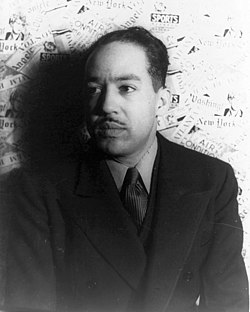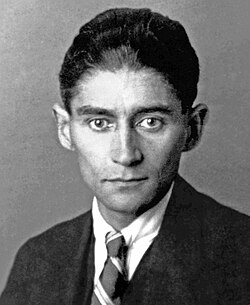More actions
< Poetry
m Tweaked format. |
Added intro. |
||
| Line 1: | Line 1: | ||
{{:Poetry/Tabs}} | {{:Poetry/Tabs}} | ||
{{dc|M}}{{Start|odernist poetry refers to a wide-ranging cultural movement}} that emerged in the early 20th century and is characterized by a radical break with traditional forms and values. | |||
{{Collapse top|title=General Characteristics|bg=#F0F2F5|left=yes}} | |||
Some of the general characteristics of modernist poetry include: | |||
* Experimentation with form: Modernist poets often experimented with new forms of poetry, including free verse, fragmented or disjointed lines, and unconventional structures. | |||
* Use of symbolism and allusion: Modernist poets frequently used symbols and allusions to represent complex ideas or emotions. | |||
* Emphasis on individual experience: Modernist poets often focused on the individual experience rather than the collective or universal. | |||
* Critique of society: Many modernist poets criticized the social and cultural norms of their time, often using their poetry as a means of social and political commentary. | |||
* Ambiguity and fragmentation: Modernist poets often employed ambiguity and fragmentation to reflect the fragmented nature of modern life and thought. | |||
* Stream-of-consciousness: Modernist poets sometimes used the stream-of-consciousness technique to explore the inner workings of the mind and to depict the flow of thoughts and emotions. | |||
* Rejection of traditional literary conventions: Modernist poets rejected traditional literary conventions such as rhyme, meter, and narrative structure. | |||
* Interest in multiple perspectives: Modernist poets often explored multiple perspectives and points of view, including those of marginalized and minority groups. | |||
These characteristics are not exhaustive, but they provide a general sense of the key features of modernist poetry. | |||
{{Collapse bottom}} | |||
{{FH}} | |||
<div style="display: flex; justify-content: center; padding: 25px 0 25px 0;"> | <div style="display: flex; justify-content: center; padding: 25px 0 25px 0;"> | ||
{| style="width: 80%;" | {| style="width: 80%;" | ||
Revision as of 09:46, 18 February 2023
Modernist poetry refers to a wide-ranging cultural movement that emerged in the early 20th century and is characterized by a radical break with traditional forms and values.
General Characteristics
|
|---|
|
Some of the general characteristics of modernist poetry include:
These characteristics are not exhaustive, but they provide a general sense of the key features of modernist poetry. |
| W. H. Auden | ||
 | ||
| Hart Crane | ||
| ||
| T. S. Eliot | ||
 | ||
| Robert Frost | ||
| Langston Hughes | ||
 | ||
| Franz Kafka | ||
 | ||
| Dylan Thomas | ||
| William Butler Yeats | ||
 | ||
